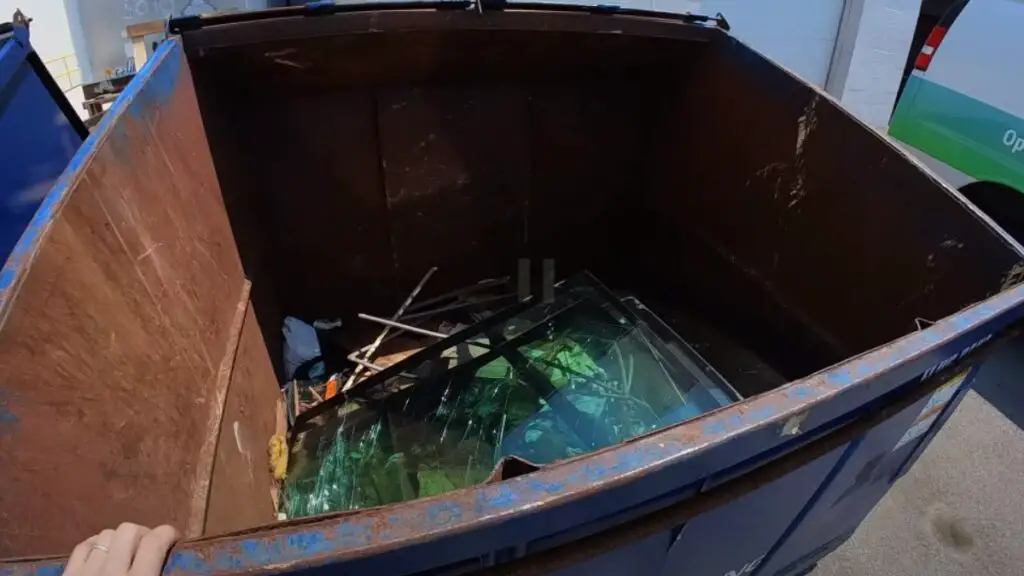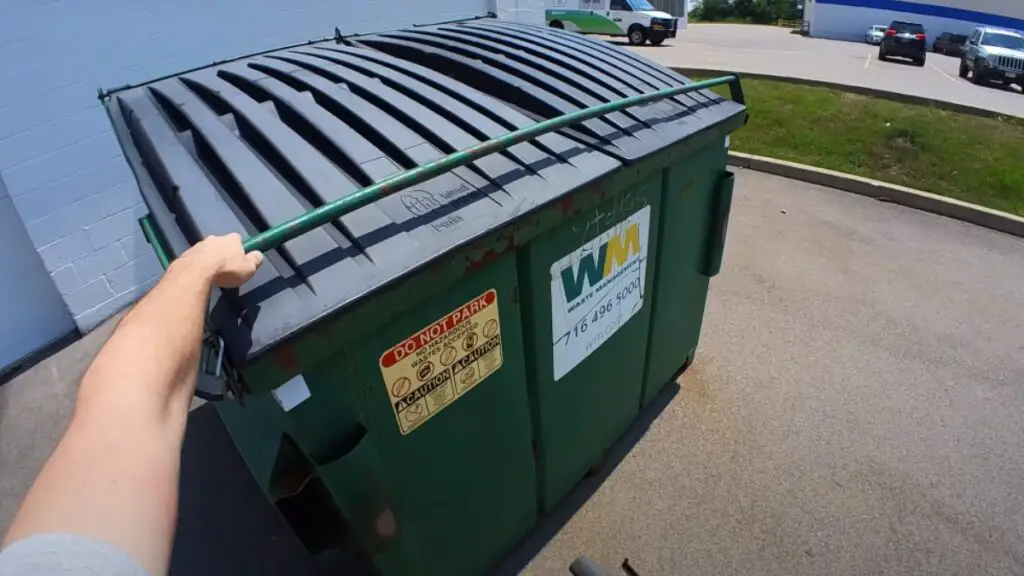Each year, Arkansas throws away tons of items that have plenty of life left in them.
From furniture to food, these discarded treasures end up in dumpsters.
However, there are some individuals who see this as an opportunity rather than just a waste.
They are known as dumpster divers, and they have made a hobby or even a lifestyle out of seeking out these items.
In this article, we will dive into whether it is legal to dump in Arkansas and the laws of diving.
Let’s dive in!
Arkansas Dumpster Diving

Arkansas, known as “The Natural State,” is located in the southern region of the United States, boasting a diverse landscape of mountains, rivers, forests, and hot springs.
Some of its most popular cities include Little Rock, the state capital, which houses the Clinton Presidential Library, and Fayetteville, home to the University of Arkansas.
Other notable cities include Bentonville, known for the Crystal Bridges Museum of American Art, and Hot Springs, renowned for its namesake natural hot springs.
Arkansas has a population of approximately 3 million people, which spreads more waste than ever before and offers an opportunity for dumpster divers.
Dumpster divers can find precious things such as furniture, goods, and many other things.
Is Dumpster Diving Legal In Arkansas
In the state of Arkansas, the act of dumpster diving is not expressly illegal per se. However, it falls into a grey area of the law.
According to the 1988 Supreme Court case, California vs. Greenwood, it was established that individuals do not have a reasonable expectation of privacy for discarded materials.
Therefore, once trash is outside and deemed abandoned, it’s fair game. Yet, this does not mean you are free from legal consequences.
If the dumpster is located on private property, trespassing laws could be invoked, which can result in a Class B misdemeanor and a fine of up to $1,000 or jail time of up to 90 days, or both.
And, if a dumpster is locked or marked with ‘No Trespassing’ signs, it is advised to steer clear.
Dumpster Diving At Night Legal In Arkansas?
Dumpster diving is generally considered legal in Arkansas at night due to the lack of specific laws prohibiting it.
However, it is crucial to respect private property rights and refrain from trespassing.
If a dumpster is located within private property or marked with ‘No Trespassing’ signs, it would be considered illegal to dive in that dumpster.
It’s also the best time to dive at night, as it is less disruptive and noticeable.
Dumpster Diving Laws In Arkansas
In Arkansas, the act of dumpster diving – the practice of sifting through waste in dumpsters, trash cans, or the like is regulated under the state’s anti-scavenging laws.
According to Arkansas law, once items are discarded and placed for refuse collection, they become part of the public domain.
However, if the receptacle is located on private property, the act can be considered trespassing and is punishable by law.
If the dumpster or trash bin is marked with ‘No Trespassing’ signs, diving is also prohibited.
It’s always best to familiarize yourself with local regulations and avoid violating property rights, as it can cause jail or fines.
Best Places To Go Dumpster Diving In Arkansas
Arkansas, renowned for its natural beauty, also hosts hidden treasures for those inclined towards dumpster diving.
Bentonville, the cradle of Walmart, offers excellent opportunities due to the high turnover of goods and merchandise.
In Little Rock, you can also find interesting items in the dumpsters of the numerous offices and restaurants.
Fayetteville also offers a plethora of discarded items, particularly at the end of semesters when students move out.
So here is the some list of the places where you can go in Arkansas:
Little Rock
Fayetteville
Bentonville
Hot Springs
Jonesboro
Pine Bluff
Please note:
Dumpster diving laws are based on their location, and it’s important to know and respect local regulations.
Always seek permission if necessary, and leave the area as clean as you find it.
So, if you are planning to dumpster dive at Kansas, Oklahoma, or Texas; you should check these state laws before going to your hunt.
How Much You Can Make By Dumpster Diving In Arkansas?
In Arkansas, dumpster diving results can vary dramatically based on factors like location, effort, and luck.
Some dumpster divers report making anywhere from a few hundred to over a thousand dollars per month.
This income stems from finding and reselling discarded items that are still in good condition or possess some value, such as furniture, electronics, or collectibles.
The potential earnings can be substantial, particularly for those who have a keen eye for valuable items and a knack for selling.
However, it’s important to note that this income is not guaranteed and can fluctuate significantly.
Precautions While Dumpster Diving in Arkansas?
Dumpster diving in Arkansas, like anywhere else, requires caution and appropriate measures to ensure safety and legality.
Always adhering to local regulations, as certain areas prohibit dumpster diving. In terms of seasonal precautions, during summer, avoid peak heat hours to prevent heatstroke.
Wear light, breathable clothing and stay hydrated. In the fall, get ready for unpredictable weather; have rain gear handy and check dumpsters for water damage.
Winter dumpster diving demands warm clothing, gloves, and slip-resistant footwear for icy conditions.
As the other spring brings increased wildlife activity, keep an eye out for animals.
Is Dumpster Diving Legal in All Areas of Arkansas?
In Arkansas, the legality of dumpster diving is not explicitly regulated by state law.
But it’s essential to understand that if the dumpsters are located on private property or if the waste has not been officially discarded, diving can potentially lead to trespassing charges.
The municipalities within the state might have their own rules or ordinances that prohibit this activity.
Therefore, while it’s not strictly illegal at the state level, nuances and local regulations make it crucial to research the relevant laws in their specific area.

Frederick Perez is the founder of Scrape Dude. He loves exploring and finding hidden treasures in unexpected places. Frederick has been dumpster diving and gold panning for years, turning his hobby into our website to share his adventures. He’s known for his friendly advice and exciting stories, inspiring others to discover the joy in these unique hobbies. His expertise makes Scrape Dude a trusted and fun place to learn and explore.


